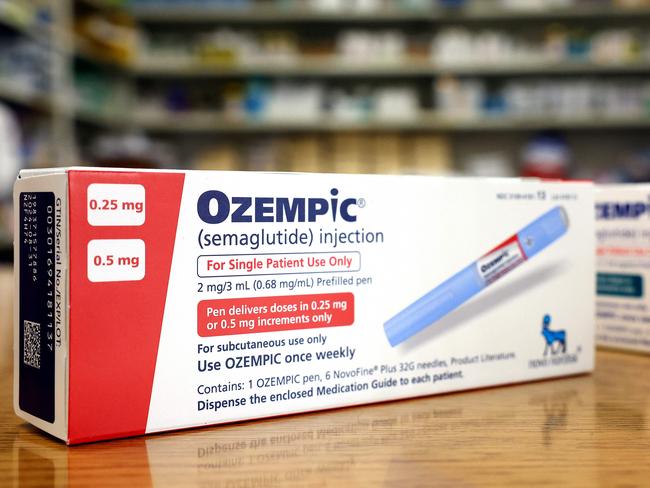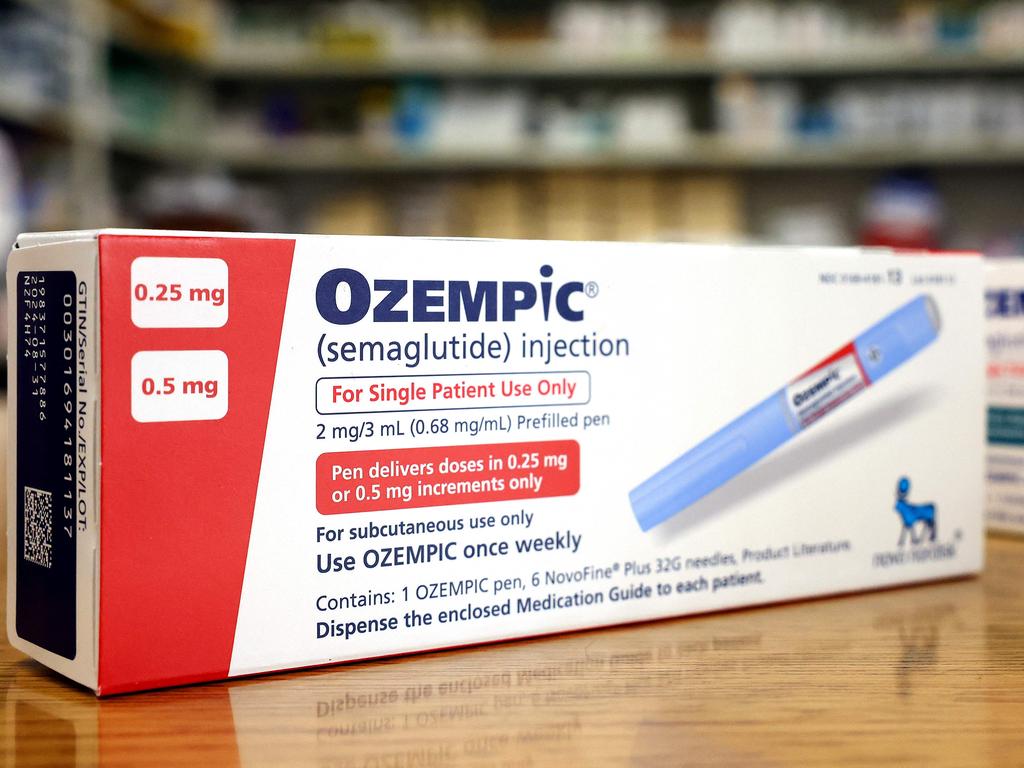Considering Ozempic? Here’s the skinny on weight loss injections
Ozempic may well be the weight loss pill in a needle form that we’ve all been waiting for. But do the risks – including blindness and thyroid cancer – outweigh the benefits?

As a nation, Australia is now a long, long way from the Hollywood trope of sinewy surfers glistening in the morning sun. In 2022, the Australian Institute of Health and Welfare found that 26 per cent of children aged from two to 17 and 66 per cent of adults are either overweight or obese. In terms of obesity, the Australian rate is, given our wealth and weather, shamefully higher than the Organisation for Economic Co-operation and Development average, which sits at 59 per cent.

Because of this, as British journalist Johann Hari reports in Magic Pill: The Extraordinary Benefits and Disturbing Risks of the New Weight-Loss Drugs, “Ozempic and its successors look set to become one of the iconic and defining drugs of our time, on a par with the contraceptive pill and Prozac”.
Lest patients “regain two-thirds of the weight they have lost within a year”, they must continue taking these drugs, a situation that essentially reframes obesity as a “chronic disease that should be managed similar to other long-term health conditions such as diabetes and hypertension” rather than as a serious lifestyle problem or by-product of deep, stifled unhappiness.
Lifelong dependency for patients has been a goldmine for Danish pharmaceutical giant Novo Nordisk, whose 2024 profit margin has, as a result of Ozempic’s market dominance, been forecast as $30bn. The company’s stock value is greater than that of its native economy.
Never mind that Ozempic patients have higher risk of developing a form of blindness due to optic nerve disease, a higher risk of developing thyroid cancer, a higher risk of developing a bowel obstruction or pancreatitis or, terrifyingly, stomach paralysis (“where your digestive system slows down and your body struggles to move food from your stomach to your small intestine. In extreme cases, your stomach can become frozen”).
Never mind, too, the fact that 20 to 30 per cent of lean muscle mass, rather than fat, is being lost, meaning that patients will become significantly weaker and less mobile as they age. Also, nausea. Explosive diarrhoea. Depression.
Users of these drugs – among them, Elon Musk and Oprah Winfrey – are prepared to impair their infinitely subtle digestive (and other) systems, with no understanding of the long-term impact, for what, in many cases, is no more than the pursuit of a gratifying “hot or not” rating.

“We don’t know if (the drugs) will even carry on working for obese people beyond a few years,” Hari writes. “And chillingly, the scientists who helped create them … are not yet sure why they work, or precisely what they are doing to us.”
Prone to “schlubbiness” since his late teens, when he was first prescribed antidepressants, Hari was especially fond of KFC and its buckets “of grease and gristle so huge that I’m too embarrassed to list its contents here.” At five foot eight, Hari weighed 14 and a half stone – a BMI of 30. He was 32 per cent fat.
Googling, he learned that whales have 35 per cent body fat.
When the “magic pill” Ozempic became available, however, Hari felt uneasy. “In 1960, when my parents were teenagers, they knew almost no obese people. There had been no obese kids at their schools … (The) transformation – unprecedented in human history – didn’t happen because we all contracted a disease. It didn’t happen because something went wrong in our biology. It happened because something went disastrously wrong with our society.”
The food-supply system, Hari writes, then changed beyond recognition. Foods that had never before existed (“designed by the food industry to be maximally addictive, pumped full of just the right proportions of sugar and salt and starch to keep us chomping”) became commonplace. Increasingly, cities were designed to be impossible to navigate by foot or bicycle. Work schedules made relaxed, affectionate family lives more difficult. Stress became the new constant.
Ozempic, in many respects, is the star on this tree of madness – as Hari observes, we’ve “built a food system that poisons us – and then, to keep us away from the avalanche of bad food, we decided to inject ourselves with a different potential poison, one that puts us off all food.”
Pointing out that the New Food has “separated flavour from the underlying quality of our food”, Hari writes that our “nutritional wisdom” has been scrambled. Millions of nasal and oral receptors – “barcode readers” that evolved to inform us whether we’re “getting enough vitamin C or vitamin D” – have been rendered purposeless. Flavour has been divorced from meaning.
In contrast, Hari cites the anomaly of Japan, “the only country in the world that got rich without getting fat”, which has a staggeringly low 4.5 obesity rate. The Metabo Law means that companies with an obese workforce (“poor health”) can be fined millions. As a result of both this and a diet based on fresh fish and vegetables, the Japanese live longer – and in better health – than any other peoples. For example, while the Australian Breast Cancer Network reports that one in seven Australian women will get breast cancer, in Japan the rate is one in 38, suggesting that processed food and weight play pivotal roles in the development of breast cancer.
The only truly beneficial impact of Ozempic’s popularity is that it has caused investors to pull out of the fast-food and snack foods markets. As Hari notes, “There’s already been a decline in the value of the stocks of the doughnut company Krispy Kreme, which analysts directly attributed to the growing popularity of Ozempic. Similarly, Mark Schneider, the chief executive of Nestle, said “food and snacking-related categories are the most impacted – in our case that will be the frozen food side of things, confectionery, and to some extent, ice cream”.
Australian financial companies cite “health and wellness” as the new keywords in snack foods.
Brilliant, fluent, gripping, and unforgettably disturbing, Magic Pill: The Extraordinary Benefits and Disturbing Risks of the New Weight-Loss Drugs is essential reading by the vulnerable Hari who, despite the results of his investigation, not only sought a prescription for Ozempic but continues to take it.
Antonella Gambotto-Burke’s latest book is Apple: Sex, Drugs, Motherhood and the Recovery of the Feminine.







To join the conversation, please log in. Don't have an account? Register
Join the conversation, you are commenting as Logout